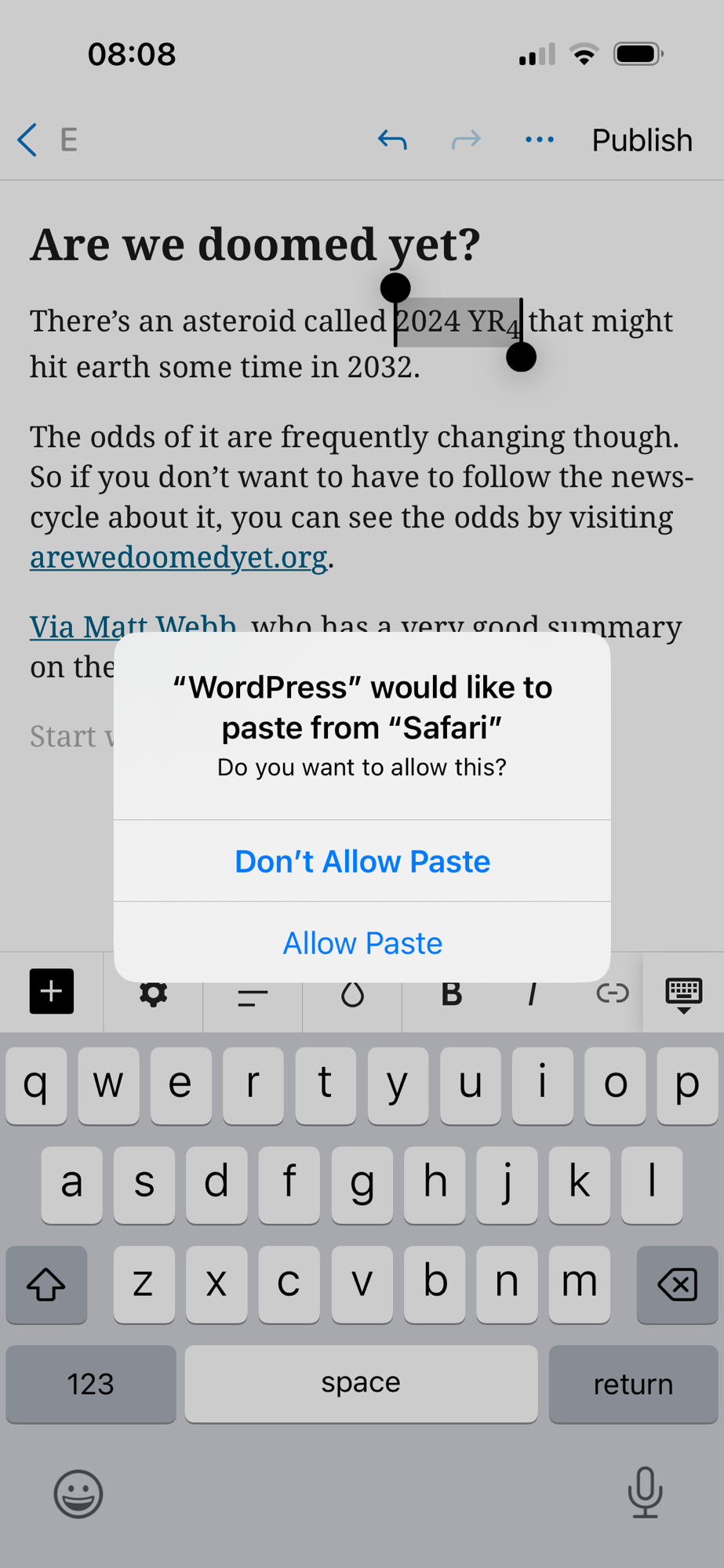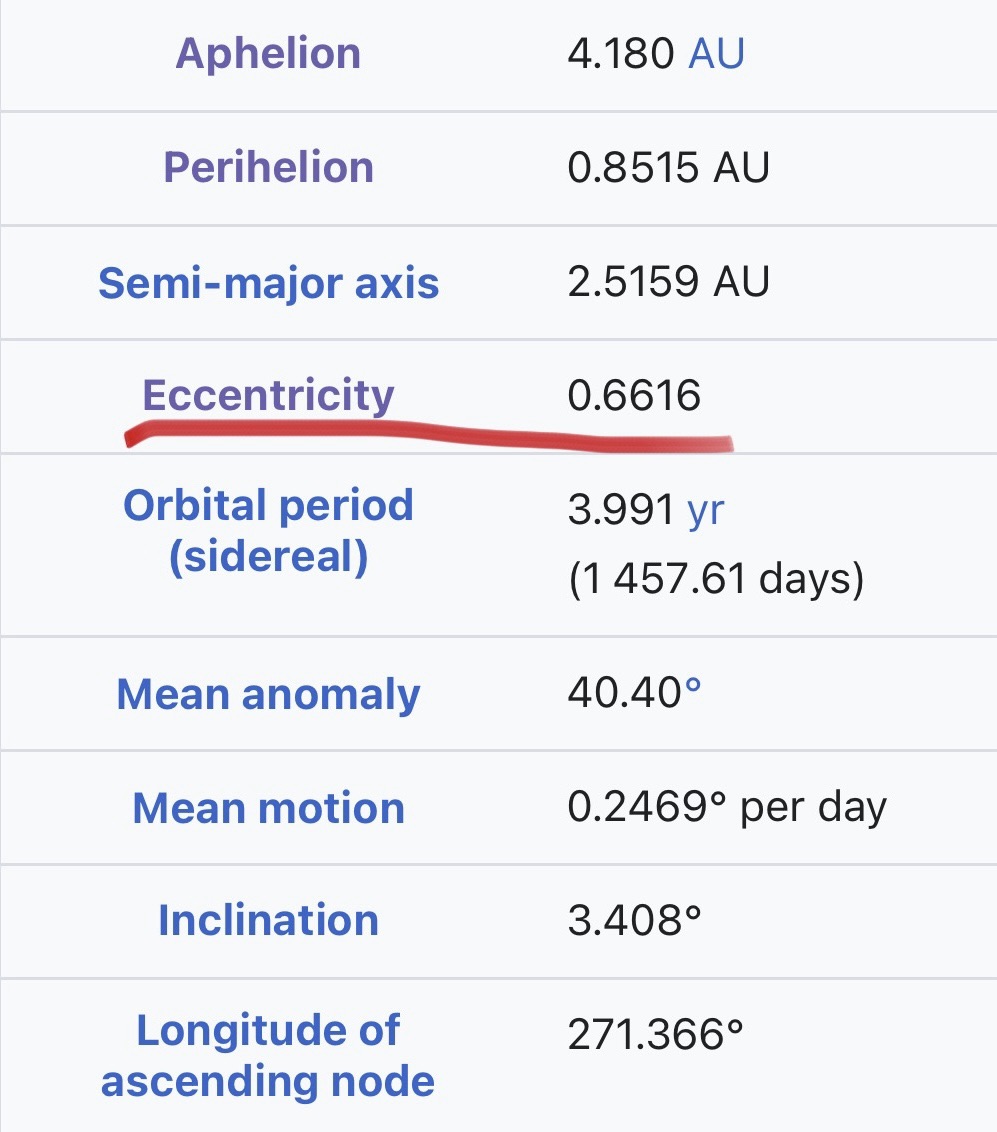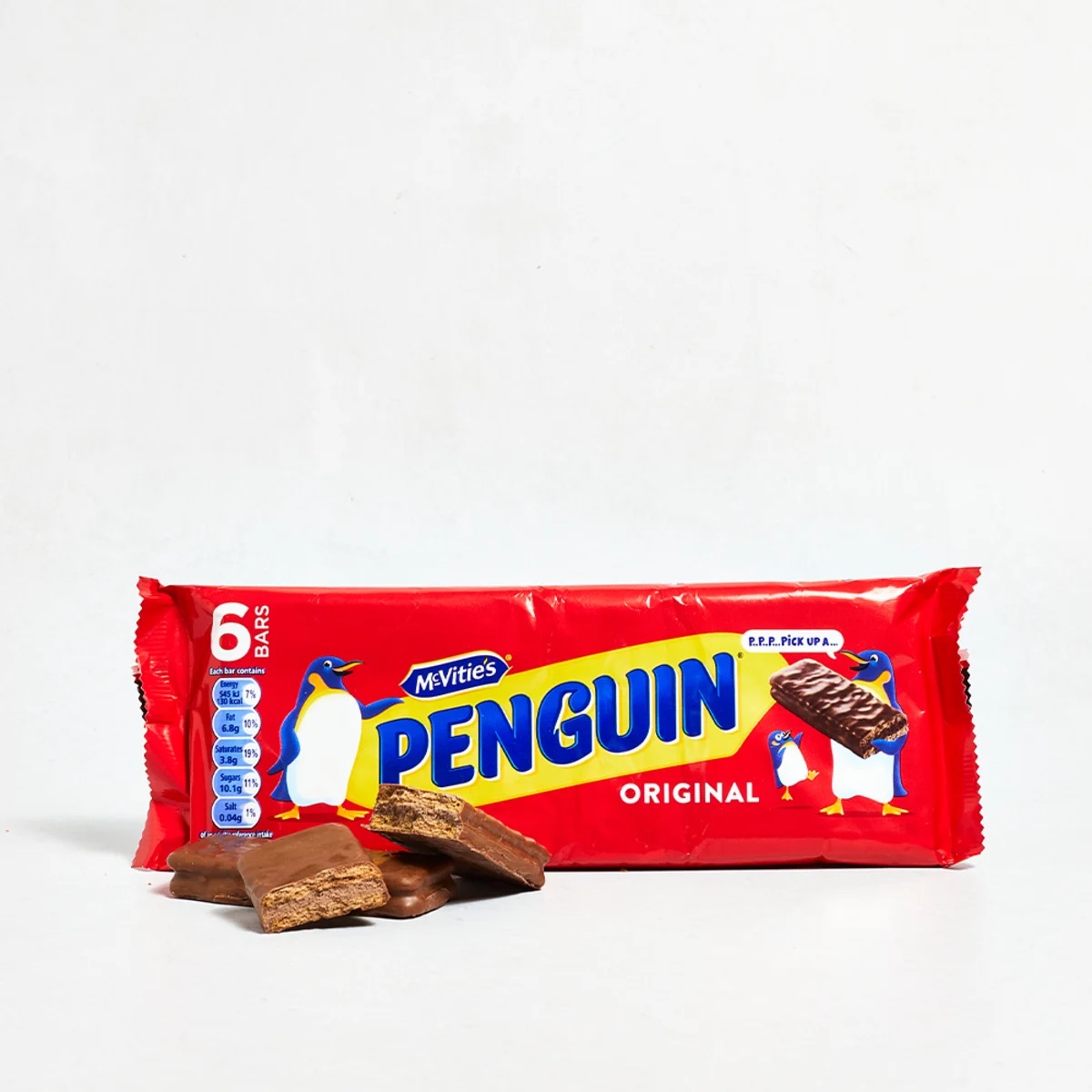Feb 20, 2025 - 4:10 pm
Weird hearing someone say “WSJ” out loud instead of “Wall Street Journal” – it takes longer to say! Like that Alan Partridge bit about “VW” vs “Volkswagen”
Weird hearing someone say “WSJ” out loud instead of “Wall Street Journal” – it takes longer to say! Like that Alan Partridge bit about “VW” vs “Volkswagen”
If a video starts with a dude wearing a backwards baseball cap, nothing interesting or good is about to happen. I immediately scroll.
It’s currently 01:32 and I was due to be asleep quite a few hours ago.
It’s fine. Once or twice a week I struggle to sleep. It’s a pain – especially when I’m working in-office the next day. But I’m used to it.And often it’s self-inflicted. It is tonight. I ate some chocolate bars after dinner, so the caffeine in it is keeping me up.
On these sleepless evenings I worry about the lack of sleep I’m going to get. But another thing I think about is how much I like the nighttime.
I don’t do fun stuff like gaming whilst up late, like I did in my teenage years. I don’t do much at all really – just read, watch, and fiddle with my phone. That’s not why I like it.
I like it because the hours between 22:00–03:00 are when my brain and body work their best – I’m creative and energetic. And it makes me miss those years when I had a sleep pattern of 04:00–12:00.
Waking up earlyI tend to wake up at 06:30 in the winter months, and 06:00 in the summer months. doesn’t bother me too much. I’ve even learnt to enjoy it.Morning walks and reading are very pleasurable. But on those days when I stay up late I get a glimpse of those midnight, witching hours that my internal clock is built for.
Security officials in the United Kingdom have demanded that Apple create a back door allowing them to retrieve all the content any Apple user worldwide has uploaded to the cloud…
The British government’s undisclosed order, issued last month, requires blanket capability to view fully encrypted material, not merely assistance in cracking a specific account, and has no known precedent in major democracies.
One of the things I hate most about Britain and its governmentsAnd it is governments. Several governments, across both political parties, have tried their best to add encryption back doors. is its weird anti-privacy obsession.
It feels like every few years they try and do something awful around encryption or spying on citizens.
Over at my other blog I’ve posted my end of week notes for February 10-16, 2025.

Rewatch. I’m just happy an Alan Partridge film exists. It’s not quite vintage Partridge, but feature lengths can often prove tricky for comedy.
If you’re not a fan of the character you can probably skip this. But if you’re a Partridge fan who has somehow missed it then give it a watch.
I have a real soft spot for this and rewatch it once a year. I find it oddly comforting as a film.
69%

I like the previous Tom Hardy / Charlize Theron one a lot – it’s a lot of fun. And I’ve rewatched it many times. But I didn’t have too much interest in a sequel. So it’s taken me a while to watch this.
It takes a little while for the film to ‘warm up’, with the first 40 minutes or so not grabbing much of my attention. But once it finds its feet this becomes a nice addition to the world of Mad Max. And there’s a war rig sequence in the middle that is especially good.
Like the previous one this is a visual feast – though the stylised and juddery CGI takes some getting used to.
Chris Hemsworth is fun. But the problem is that he’s too silly to be an evil villain, and he’s one of the weaker parts of the film.
The sound design is incredible. Volume wise it’s perfect, becoming loud only when it needs to (I didn’t have to constantly have the remote in my hand).
It’s not quite as good as the first one. Especially plot/story wise. But as a spectacle it’s still great fun.
73%
Most of my weekend has been spent microdosing liquorice.
A thread on reddit’s /r/AskOldPeople: Does anyone else feel like f-it, I’m going to quit going to the doctor?
I’m not anti-doctor, and certainly not anti-science. The improvements in medicine and medical care is one of the big reasons I’m happy to be alive in 2025 instead of 1725.And I’m not one of those people who constantly bangs on about ‘big pharma’. And I’m certainly not one of those people who’s into ‘alternative medicine’ or quackery like chiropractors.
However, I’ve had largely poor results from visiting doctors and tend to avoid going to them.Much to the annoyance and despair of my girlfriend and mum. I just know they’re not going to do much for me and it feels like a wasted trip.
The major medical issues I’ve had:
I’ll of course quickly go to the doctor if I have blood in my stool, chest pains or other serious symptoms. But for ‘niggling’ little things I tend not to bother anymore. They’re unlikely to help me, in my experience.

Ruben Schade complains about a mug with a tiny handle. And I’m with him all the way.
The example above is an extreme case. But in general far too many mug handles are too small.I’m fairly tall, so I’d imagine my hands are a bit bigger than average. But I think even for the averagely sized person they’d struggle to get their fingers into many mug handles.
Me and my girlfriend are buying our own place and need to buy homeware. And I refuse to buy mugs online without holding them first.
For me it’s vital that I can get all my fingers through the handle without it being a tight fit. So many cool mugs don’t pass that test.
This Le Creuset one is lovely, but it fails the testI was doubly upset this mug fails the test, as I have some oven pans from Le Creuset that are the exact same colour – it would have been nice to match them.:

I’d love a nice Emma Bridgwater one, but again it fails the test:

In my experience the best mug is the bog-standard, generic mug. You know, the one that companies buy in bulk and print their logo on. You can’t go wrong with it. I’ve had my Stark Industries one for over 10 years now:

Progress in nearly all aspects of love, although hard-won, has advanced dramatically over the last 200 years. Granted, the progress didn’t come fast enough, equitably enough, or ubiquitously enough, and there is still much progress to be made, but advancements have been made nonetheless, and they are continuing. In large swathes of the world, long gone are the days when you could sell your wife on the open market or even when physical violence against a partner, and particularly against women, was a tolerated part of everyday life. (Although rates of domestic violence remain high in certain countries.) With each passing year, the worst crimes against love, from bigotry to abuse and from class and racial stigma to rape and forced marriage, have become more culturally abhorrent and legally impermissible.
Although there’s plenty of work still to be done. This shocked me:
UNICEF estimated in a 2021 report that 650 million women alive today were married before their 18th birthday.

Why is iOS so concerned about pasting into apps? I consider myself pretty security/privacy conscious, but I feel like I shouldn’t need to give an app permission to copy my clipboard.

There’s an asteroid called 2024 YR4 that might hit earth some time in 2032.
The odds of the event are frequently changing though. So if you don’t want to have to follow the news-cycle about it, you can see the odds by visiting arewedoomedyet.org.
Via Matt Webb, who has a very good summary on the asteroid.
Something I learnt from the 2024 YR4 Wikipedia page is that asteroids have an ‘eccentricity’ rating. This one is 0.6616 eccentric. Whatever that means.

There’s some things that dominate the public psyche during a certain period and define a year/decade. But also are somehow forgotten a few years later. It’s not until someone mentions it that you go “oh yeah, there was lots of talk about 2012 being the end of the world. I forgot about that.” I suspect this asteroid will be one of those.
It’s sad that if I see someone in the street jumping for joy, dancing or singing I assume that they’re either mentally ill or on drugs.
Loudly and openly expressed joy is taboo. Especially in Britain. We look down on that sort of thing.

Penguin’s have got to be one of the worst chocolate bars going.
Their texture and taste is atrocious.
And my girlfriend willingly and happily eats them.
I thought the only people who ate them were school kids, because it was put in their lunchbox by their parent trying to save a bit of money by buying one of the WORST AND CHEAPEST CHOCOLATES.